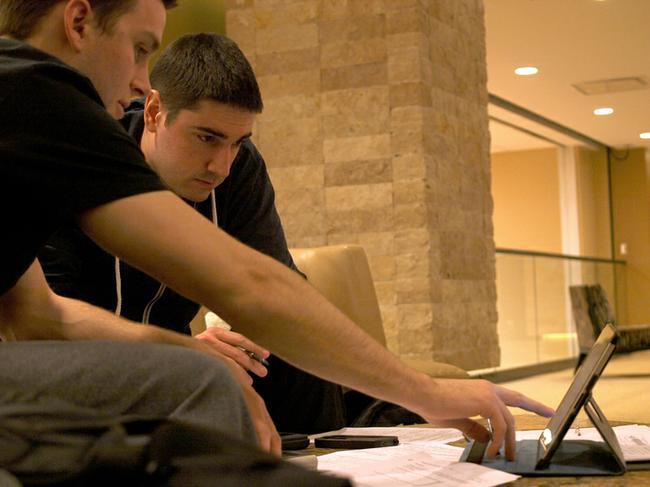The Obama administration issued a statement last week encouraging classrooms across the country to adopt digital textbooks within five years, according to a report by The Associated Press.
The use of digital textbooks at MU is limited, and many students are not receptive to the idea of ever using them. Students have many reasons as to why they are opposed to digital books over traditional textbooks.
“I’ve never used a digital textbook, and I never will use them,” freshman Laura Connor said.
Connor said there is something about having a book in front of her that helps her learn.
“I don’t like reading on my computer,” Connor said. “I feel like it’s less effective in aiding in learning and remembering. I like to annotate and highlight, and I would do that less in a digital textbook.”
Freshman Allissa Fisher also prefers having a traditional textbook in front of her.
“You have to worry about keeping your iPad fully charged and if you have any technical difficulties you may not be able to access it,” Fisher said.
Although Fisher has an iPad, she uses it mostly for entertainment instead of educational purposes.
“I have a few magazine and newspaper subscriptions that I keep up with,” Fisher said. “That’s basically all I use for any class.”
At the MU Bookstore, digital textbook sales have been stagnant for the past several years, Student and Auxiliary Services spokeswoman Michelle Froese said.
“We’re not seeing demand for digital textbooks from students or faculty,” Froese said. “There has to be demand for it and there has to be content for it.”
Froese said there are several reasons for lack of demand. Many students are more interested in the bookstore’s rental option, which accounts for almost 10 percent of course material provided by the bookstore. The fact that there is not a standard format of digital course material is also a hindrance to students. Digital content can be viewed from an iPad, Kindle, laptop or other handheld device, but publishers do not always create content that is compatible with all devices.
Although many students are disinterested in digital textbooks, some students prefer studying on digital devices.
“I would honestly probably do a lot more reading if I had a digital textbook than I do with a hardback version,” freshman John Zupon said.
Zupon said he uses his iPad for anything he possibly can when it comes to studying. He makes flashcards, uses the application Notability to take notes and accesses Blackboard.
Unfortunately for students like Zupon, the implementation of digital textbooks also depends heavily on publishers’ decisions to provide textbooks in a digital format. Students who would like to use digital textbooks often find they do not have that option.
“I’ve tried to purchase digital textbooks, but I haven’t been lucky enough to find them for my classes,” Zupon said.
Several classes already use online components that are not necessarily considered digital textbooks. Students generally purchase an access code from the bookstore and use the site for interactive homework.
“From a bookstore standpoint, we can fulfill that need if there is demand for it and content,” Froese said. “It’s up to the publishers if they want to provide a book in the digital version.”








